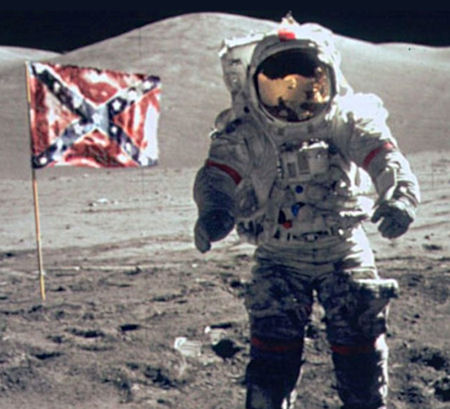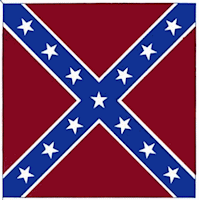
If the South Had Won
 If the South had won, the United States would be a quarrelsome collection of a score of independent countries, un-progressive as the Balkans. If the South had won its independence, the result would have been to create an irresistible precedent, an unanswerable justification for any other section that was so minded to withdraw and go its own way. If the South had won, it is entirely conceivable, and indeed likely, that the United States would have rapidly dissolved into a congeries of petty republics contending among themselves for a New World balance of power, exhausting their resources in military rivalry, surrendering half their freedom to some European alliance from fear of aggression or in the hope of ascendancy.
If the South had won, the United States would be a quarrelsome collection of a score of independent countries, un-progressive as the Balkans. If the South had won its independence, the result would have been to create an irresistible precedent, an unanswerable justification for any other section that was so minded to withdraw and go its own way. If the South had won, it is entirely conceivable, and indeed likely, that the United States would have rapidly dissolved into a congeries of petty republics contending among themselves for a New World balance of power, exhausting their resources in military rivalry, surrendering half their freedom to some European alliance from fear of aggression or in the hope of ascendancy.
Great Britain and France were anxious not to be implicated in the domestic affairs of the Americans, although they watched the progress of the Civil War with the utmost interest. A breaking up of the Union would not greatly have distressed European Powers; for a divided America was likely to prove a less formidable rival than an America consolidated and united. The mass of the British nation, however, appreciated the reasons which had prompted the North to go to war, and sympathized with the Union. But the "sporting instincts" of the aristocrats were aroused by the conduct of the South, which, though much the weaker party, was engaged in a brave fight for liberty.
The Czar of Russia, fearing that the United States, if they should become divided by a southern victory, would fall, part into the hands of France and part into the hands of England, sent two naval forces, one to New York and one to San Francisco, with sealed but explicit instructions to prevent all interference by France and England in the internal affairs of the United States. For this doctrine of non-interference in the internecine conflicts of foreign nations, promulgated and very practically enforced by Russia, the people of the United States have been grateful ever since, notwithstanding the fact that the Czar's action was prompted not by love for the United States but by jealousy of France and England.
Free government as it existed in the United States was a new thing in the world - a kind of political experiment as yet not thoroughly tested, upon which the Old World looked with interest, but with doubt as to the outcome. Free governments had existed and still existed in the Old World; but the experience of the Old World, confirmed by the political philosophy of the eighteenth century, declared that free government, in any radical sense of the term, was suited only to small states, such as the city-states of Greece and Italy, or the cantons of the Swiss mountains. It was still a debatable question whether government by the people was suitable to an extensive territory; and in the experiment now being conducted in the United States no point was of greater interest or importance than this: Could a first-rate political power be erected and maintained on a democratic basis?
It is not too much to say that the disruption of the United States would have answered this question in the negative for a long future. Precisely this result had often been predicted by those who sought to discredit republican institutions and feared by those who supported them. It was said that a great continent like the United States must inevitably fall apart if it continued to be governed by public opinion. Sectional differences of interests and ideals must inevitably develop to the point where political union could be preserved only by a government which in some measure transcended public opinion, and in some degree rested upon military power. The divergence between North and South had now reached this point, and the contest between them would be decisive.
Such a result would have tremendously compromised the future of democracy. In Europe, above all in England, the disruption of the Union would have been taken to mean that no great state could hope to win or to retain pre-eminence in the world's affairs if it surrendered itself unreservedly to government by the people. This is precisely why the laboring classes in England supported the North, while the governing classes hoped for the success of the South.
John Bright, Member for Birmingham, was the leading opponent of slavery in Britain during the American Civil War. Of the two portraits hanging in Lincoln�s own office, one was of Bright. Bright was greatly esteemed by Abraham Lincoln for his advocacy in the months prior to the Emancipation Proclamation, issued by Lincoln on 22 September 1862 as an executive order in his capacity as the Commander-in-Chief on the grounds of military necessity and consistency.
In June 1863, Bright defeated a resolution in the House of Commons for an alliance between Britain, the Emperor Napoleon II of France, and the southern Confederate states against the North, as well as ditching the �16 million support raised in England to support the South.
On 26 March 1863 Bright stated, in words that the laborers of England could understand, the significance for them of the Civil War. In his speech "America and England" at St. James's Hall, he said: "Privilege thinks it has a great interest in the American contest, and every morning, with blatant voice, it comes into our streets and curses the American Republic. Privilege has beheld an afflicting spectacle for many years past. It has beheld thirty millions of men happy and prosperous, without emperors-without kings [cheers]-without the surroundings of a court [renewed cheers}-without nobles, except such as are made by eminence in intellect and virtue - without State bishops and State priests, those venders of the love that works salvation [cheers] - without great armies and great navies - without a great debt and great taxes and Privilege has shuddered at what might happen to old Europe if this great experiment should succeed."
|
NEWSLETTER
|
| Join the GlobalSecurity.org mailing list |
|
|
|

